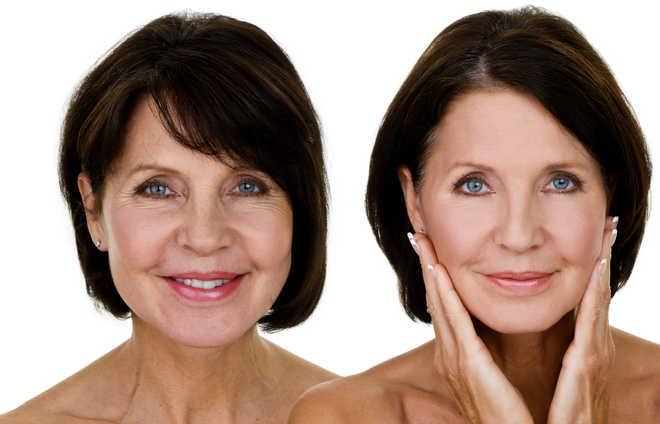Dr Vikas Sharma
Until recently, the only way to address problems caused by facial skin laxity—such as jowls and drooping cheeks— was face-lift surgery. Everyone experiences facial changes with age as the elastic and collagen fibres degenerate. The affected areas generally include the cheeks, the eyebrows and other areas around the eyes, the jowls and the neck. The result is distortion of smooth textures and sagging skin on the face. The changes are more pronounced or significant on the lower area of face, which is subjected to major movements during the lifetime like chewing, smiling and speech.
Novel procedure
A new type of procedure has been developed to fill in the gap between non-invasive facial rejuvenation and facelift surgery: The “thread lift”.
Many benefits
A thread lift may be a good alternative to the more invasive surgical procedures necessary to correct problems in sagging faces especially in lower jaw areas. Thread lifts emerged recently because many people would like a facelift, but can’t afford it or don’t want the long recovery time of the standard facelift. Thread lifts cost less and require less downtime for many people.
Minor precautions
While thread lift recovery is not particularly intensive, patients will still have to take a few minor precautions while healing. It’s important to make sure that you don’t rub your face vigorously while cleaning it or applying exfoliating creams for at least a week after having threads placed. You should also try to prop your head up slightly so that you don’t roll over directly onto your face while sleeping.
Thread lifts are low-risk, thanks to how non-invasive they are. There is virtually no risk of scarring, severe bruising, bleeding or other complications.
Some prerequisites
Persons going for a thread lift should ideally be of age group 35-55 years. Not on any anticoagulant treatment. Tissue must not be too heavy or too thin as it needs enough fat for anchorage, but not too much weight to support or lift.
The selection of thread should be proper, having the necessary cogs and having a perfectly biocompatible inert material composite. Consideration of facial muscle kinetics and dynamics of thread lifting.
(Dr. Sharma is a Chandigarh-based dermatologist)
Unlock Exclusive Insights with The Tribune Premium
Take your experience further with Premium access.
Thought-provoking Opinions, Expert Analysis, In-depth Insights and other Member Only Benefits
Already a Member? Sign In Now










